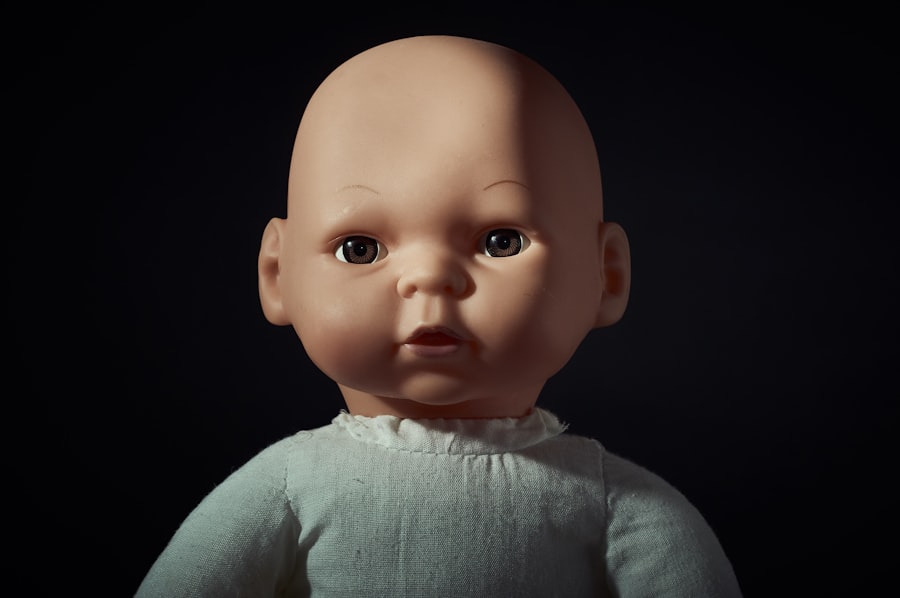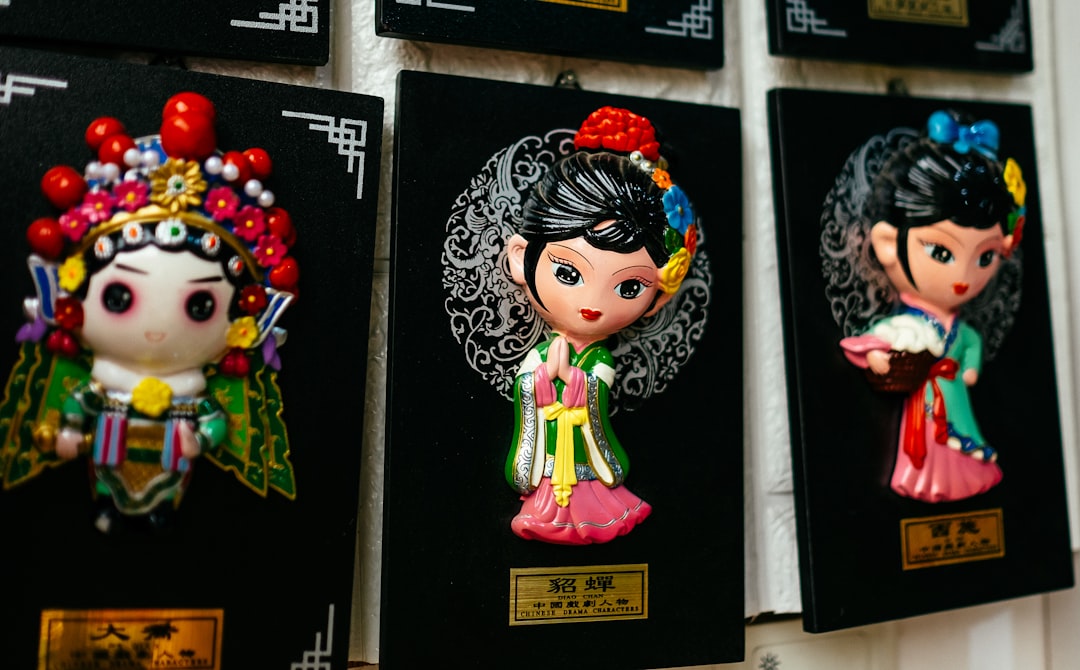Tiffany, a character from the “Child’s Play” franchise, is a unique blend of horror and dark humor that has captivated audiences since her introduction in “Bride of Chucky.” Created by screenwriter Don Mancini, Tiffany is not just a doll; she embodies a complex persona that intertwines themes of love, betrayal, and the macabre. Initially appearing as a seemingly innocent doll, Tiffany quickly reveals her darker side, showcasing a personality that is both seductive and sinister. Her character serves as a pivotal point in the series, transforming the narrative from a straightforward horror story into a tale rich with emotional depth and twisted romance.
The allure of Tiffany lies in her duality. On one hand, she is the quintessential femme fatale, exuding charm and charisma that draw others to her. On the other hand, she is a vengeful spirit, driven by a desire for power and revenge.
This juxtaposition makes her an intriguing figure within the horror genre, as she challenges traditional gender roles and expectations. Unlike many female characters in horror films who are often relegated to the role of victims, Tiffany takes control of her destiny, making her a compelling character who resonates with audiences on multiple levels.
Tiffany’s Transformation
Tiffany’s transformation from a mere doll to a fully realized character is one of the most fascinating aspects of her narrative arc. In “Bride of Chucky,” she is introduced as the former girlfriend of Charles Lee Ray, the notorious killer who inhabits the Chucky doll. When she is resurrected through a voodoo ritual, Tiffany undergoes a metamorphosis that not only alters her physical appearance but also amplifies her personality traits.
The transition from doll to human form allows her to express her desires and ambitions more freely, showcasing her as a formidable force in her own right. This transformation is not merely superficial; it symbolizes Tiffany’s quest for identity and autonomy. As she sheds her doll-like exterior, she embraces her darker impulses and revels in the chaos that follows.
The film cleverly juxtaposes her newfound freedom with the constraints of societal norms, particularly those surrounding femininity and relationships. Tiffany’s evolution reflects a broader commentary on the nature of identity and the lengths one might go to reclaim it. Her journey is marked by moments of empowerment, as she navigates the complexities of love and vengeance while remaining unapologetically herself.
Tiffany’s Relationship with Chucky

The relationship between Tiffany and Chucky is central to the narrative of “Bride of Chucky” and subsequent films in the franchise. Their bond is characterized by a tumultuous mix of love, obsession, and violence. Tiffany’s infatuation with Chucky is evident from the outset; she sees him not just as a partner in crime but as a kindred spirit who understands her dark desires.
This connection adds layers to their characters, transforming them from mere antagonists into tragic figures whose love story unfolds against a backdrop of horror. However, their relationship is far from idyllic. Chucky’s inherent brutality often clashes with Tiffany’s more romantic inclinations, leading to moments of tension and conflict.
Despite this volatility, Tiffany remains fiercely loyal to Chucky, often going to great lengths to protect him and further their shared goals. This dynamic creates an intriguing push-and-pull between the two characters, highlighting themes of loyalty and betrayal. Their interactions are laced with dark humor, showcasing how love can manifest in twisted ways within the horror genre.
Tiffany’s Motivations
Tiffany’s motivations are complex and multifaceted, driven by a combination of love, revenge, and a desire for power. At her core, Tiffany seeks validation and acceptance, particularly from Chucky. Her love for him is intertwined with her need to prove herself as more than just a doll or an extension of his violent tendencies.
This quest for recognition fuels many of her actions throughout the series, as she grapples with her identity and what it means to be truly alive. Revenge also plays a significant role in shaping Tiffany’s motivations. After being betrayed by Chucky in various ways—whether through his violent outbursts or his infidelity—Tiffany becomes increasingly vengeful.
Her desire for retribution drives much of the plot in “Bride of Chucky,” as she seeks to reclaim power over her own life while also exacting revenge on those who have wronged her. This duality of love and vengeance creates a rich tapestry of emotions that makes Tiffany one of the most compelling characters in the franchise.
The Evolution of Tiffany’s Character
Tiffany’s character evolves significantly throughout the “Child’s Play” series, reflecting broader themes of empowerment and self-discovery. In “Bride of Chucky,” she emerges as a strong female figure who defies traditional horror tropes. Unlike many female characters who are often portrayed as passive victims, Tiffany actively engages in violence and manipulation, asserting her agency in a world dominated by male characters.
This evolution continues in subsequent films, where she becomes more complex and nuanced. As the series progresses, Tiffany’s character grapples with the consequences of her actions. In “Seed of Chucky,” for instance, she faces the challenges of motherhood while navigating her tumultuous relationship with Chucky.
This exploration of motherhood adds depth to her character, showcasing her vulnerabilities alongside her fierce determination. The evolution of Tiffany from a vengeful spirit to a multifaceted character reflects broader societal changes regarding female representation in horror films, making her an iconic figure within the genre.
Tiffany’s Impact on the Bride of Chucky franchise

Tiffany’s impact on the “Bride of Chucky” franchise cannot be overstated. She serves as a catalyst for change within the series, shifting its tone from pure horror to one that incorporates elements of dark comedy and romance. Her presence introduces new dynamics that challenge traditional horror conventions, allowing for a more nuanced exploration of relationships and identity.
The interplay between Tiffany and Chucky adds layers to their characters, making them more relatable despite their monstrous actions. Moreover, Tiffany’s character has inspired a dedicated fanbase that appreciates her complexity and charisma. Her iconic look—complete with platinum blonde hair and punk-inspired fashion—has become emblematic of the franchise itself.
The blend of horror and humor that Tiffany embodies has influenced subsequent films within the genre, paving the way for other strong female characters who defy expectations. As a result, Tiffany has become an enduring symbol of empowerment within horror cinema.
Tiffany’s Legacy
Tiffany’s legacy extends beyond her appearances in the “Child’s Play” franchise; she has become an icon in popular culture. Her character resonates with audiences who appreciate strong female figures who challenge societal norms and embrace their darker impulses. The blend of horror and humor that defines Tiffany has inspired countless discussions about gender representation in film, particularly within genres traditionally dominated by male characters.
In addition to her cultural impact, Tiffany has also influenced various forms of media beyond film. Merchandise featuring her likeness has become popular among fans, further solidifying her status as an icon within horror culture. The character has appeared in comic books, video games, and even stage adaptations, showcasing her versatility and enduring appeal.
As discussions about representation in media continue to evolve, Tiffany remains a significant figure whose legacy will likely endure for years to come.
Tiffany’s Twisted Tale
Tiffany’s journey through the “Child’s Play” franchise is one marked by complexity and contradiction. From her transformation into a powerful figure to her tumultuous relationship with Chucky, she embodies themes of love, revenge, and self-discovery that resonate deeply with audiences. Her evolution reflects broader societal changes regarding female representation in horror films while simultaneously challenging traditional narratives within the genre.
As an iconic character who defies expectations and embraces her darker impulses, Tiffany has left an indelible mark on popular culture. Her legacy continues to inspire discussions about empowerment and identity within horror cinema, making her not just a character but a symbol of resilience in the face of adversity. In many ways, Tiffany’s twisted tale serves as a reminder that even within the darkest narratives, there exists room for complexity and depth—a testament to the enduring power of storytelling in all its forms.
FAQs
What is the movie “Bride of Chucky” about?
The movie “Bride of Chucky” is a horror-comedy film that follows the story of Chucky, a notorious killer doll, and his former girlfriend Tiffany, who is also turned into a doll. The two dolls embark on a murderous rampage while also trying to transfer their souls into human bodies.
Who is Tiffany in “Bride of Chucky”?
Tiffany is a character in the “Child’s Play” film series and is the former girlfriend of the killer doll Chucky. In “Bride of Chucky,” she is transformed into a doll and becomes the titular “Bride of Chucky.”
What is Tiffany’s role in the “Bride of Chucky” movie?
In the movie “Bride of Chucky,” Tiffany plays a central role as the former girlfriend of Chucky who is transformed into a doll. She becomes the “Bride of Chucky” and joins him in a murderous spree while also trying to transfer their souls into human bodies.
Who portrays Tiffany in the “Bride of Chucky” movie?
In the “Bride of Chucky” movie, Tiffany is portrayed by actress Jennifer Tilly. Tilly’s performance as Tiffany received praise from both fans and critics.
Is “Bride of Chucky” a sequel to the “Child’s Play” series?
Yes, “Bride of Chucky” is the fourth installment in the “Child’s Play” film series. It follows the events of the previous films and continues the story of the killer doll Chucky.










